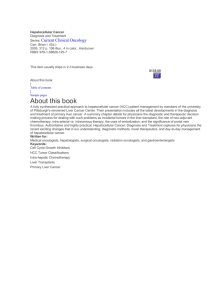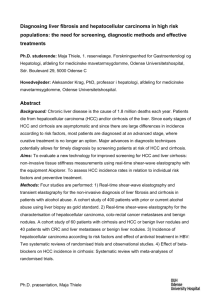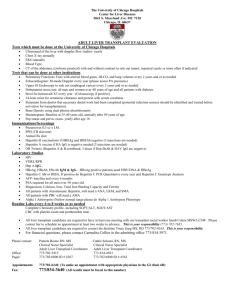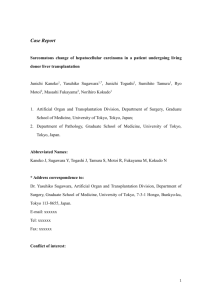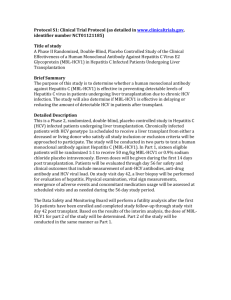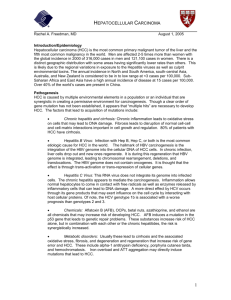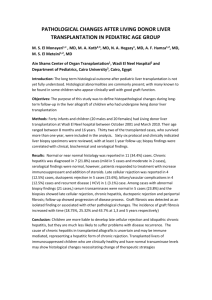Mohsew689_126_20130610232416
advertisement
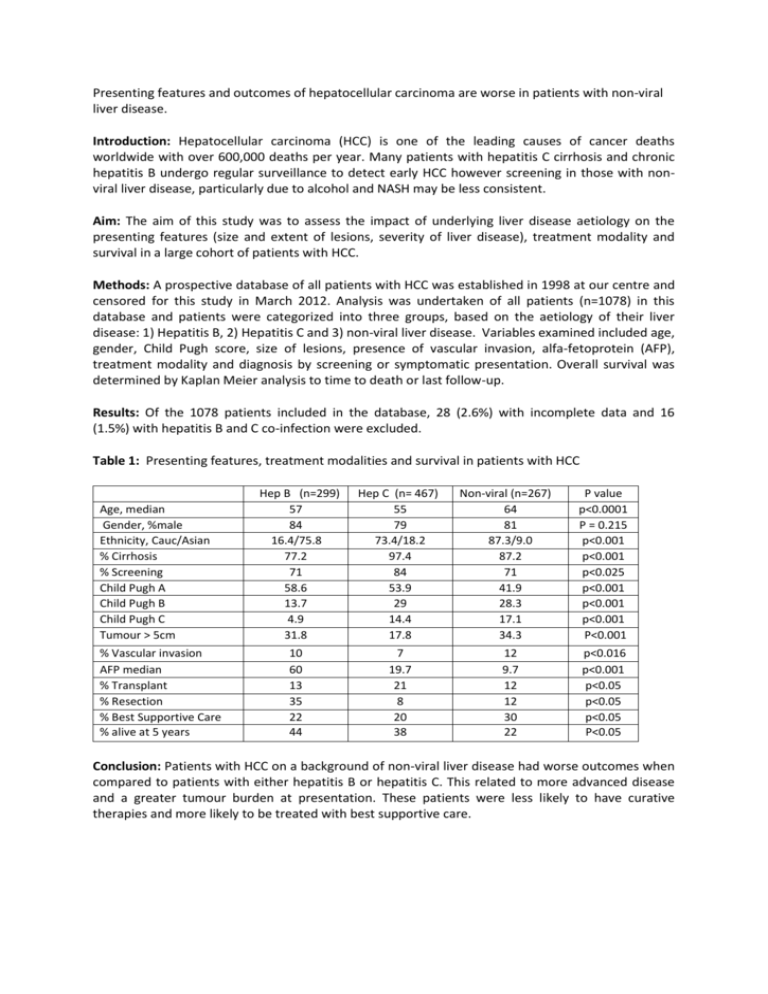
Presenting features and outcomes of hepatocellular carcinoma are worse in patients with non-viral liver disease. Introduction: Hepatocellular carcinoma (HCC) is one of the leading causes of cancer deaths worldwide with over 600,000 deaths per year. Many patients with hepatitis C cirrhosis and chronic hepatitis B undergo regular surveillance to detect early HCC however screening in those with nonviral liver disease, particularly due to alcohol and NASH may be less consistent. Aim: The aim of this study was to assess the impact of underlying liver disease aetiology on the presenting features (size and extent of lesions, severity of liver disease), treatment modality and survival in a large cohort of patients with HCC. Methods: A prospective database of all patients with HCC was established in 1998 at our centre and censored for this study in March 2012. Analysis was undertaken of all patients (n=1078) in this database and patients were categorized into three groups, based on the aetiology of their liver disease: 1) Hepatitis B, 2) Hepatitis C and 3) non-viral liver disease. Variables examined included age, gender, Child Pugh score, size of lesions, presence of vascular invasion, alfa-fetoprotein (AFP), treatment modality and diagnosis by screening or symptomatic presentation. Overall survival was determined by Kaplan Meier analysis to time to death or last follow-up. Results: Of the 1078 patients included in the database, 28 (2.6%) with incomplete data and 16 (1.5%) with hepatitis B and C co-infection were excluded. Table 1: Presenting features, treatment modalities and survival in patients with HCC Age, median Gender, %male Ethnicity, Cauc/Asian % Cirrhosis % Screening Child Pugh A Child Pugh B Child Pugh C Tumour > 5cm % Vascular invasion AFP median % Transplant % Resection % Best Supportive Care % alive at 5 years Hep B (n=299) 57 84 16.4/75.8 77.2 71 58.6 13.7 4.9 31.8 Hep C (n= 467) 55 79 73.4/18.2 97.4 84 53.9 29 14.4 17.8 10 60 13 35 22 44 7 19.7 21 8 20 38 Non-viral (n=267) 64 81 87.3/9.0 87.2 71 41.9 28.3 17.1 34.3 12 9.7 12 12 30 22 P value p<0.0001 P = 0.215 p<0.001 p<0.001 p<0.025 p<0.001 p<0.001 p<0.001 P<0.001 p<0.016 p<0.001 p<0.05 p<0.05 p<0.05 P<0.05 Conclusion: Patients with HCC on a background of non-viral liver disease had worse outcomes when compared to patients with either hepatitis B or hepatitis C. This related to more advanced disease and a greater tumour burden at presentation. These patients were less likely to have curative therapies and more likely to be treated with best supportive care.
